
China
15:11, 13-Sep-2017
China Footprint: Tonglu, a small county that makes great effort dealing pollution
CGTN
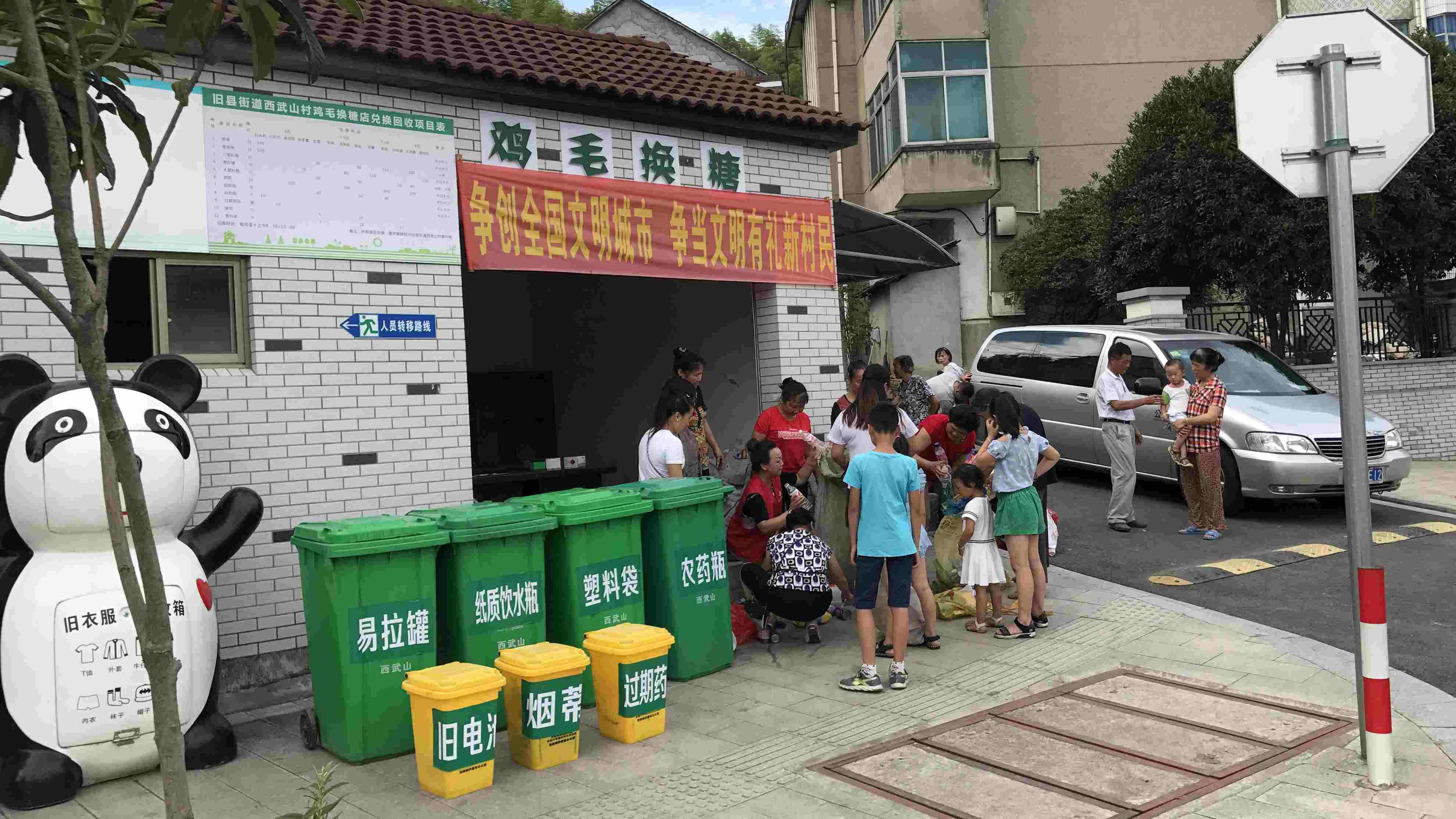
Garbage treatment has long been a big problem in rural China. But one county in east China's Zhejiang Province has come up with smart ways to encourage local villagers to sort their garbage. And now, sorting trash has become a habit for the villagers.
Every ten days, residents of Xiwushan village in Tonglu county go to a small exchange station to receive some daily necessities for free.
But one condition stands: They have to bring some recyclable garbage in exchange.
For example, locals can exchange 300 cigarette butts for 1 cigarette lighter, or 80 used batteries for 1 bar of soap.
When government officials first launched the project, they were not sure if the villagers would bother to take part. But they have seen surprisingly good results.
The exchange station opened late last year as a new garbage sorting method by the local authorities.
The items given in exchange are not expensive and they are even bought with money donated by the villagers themselves.
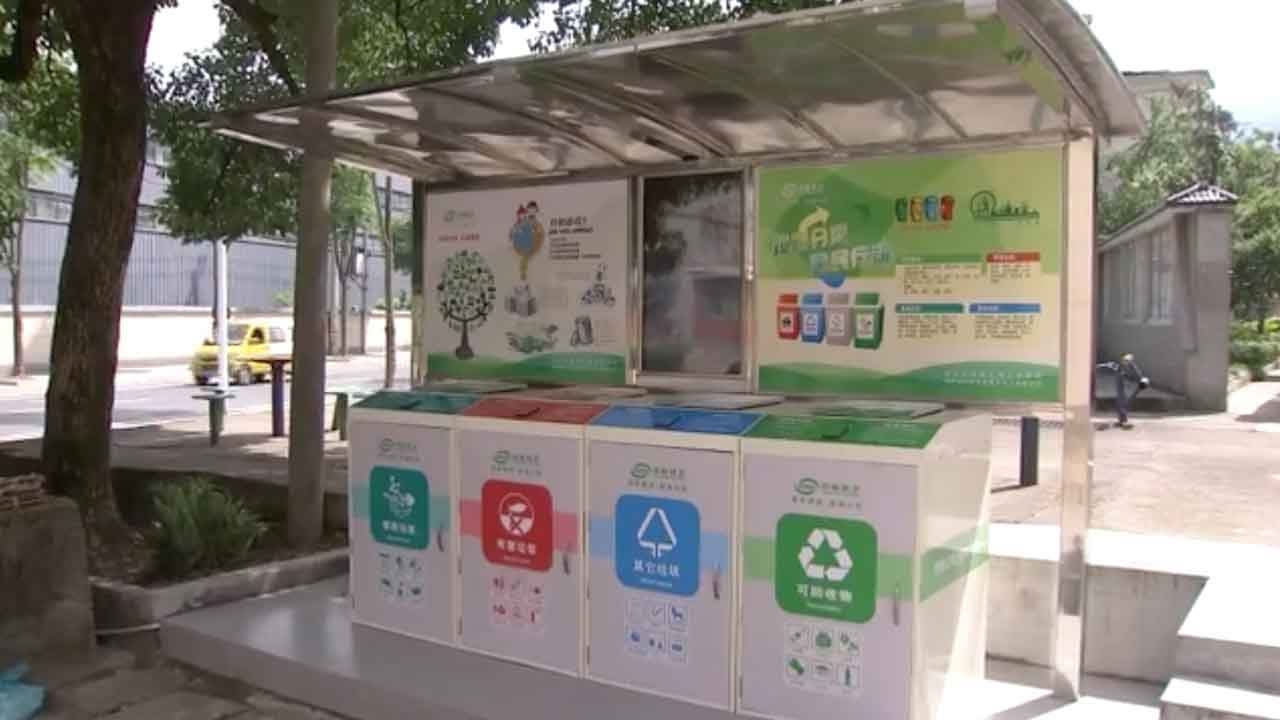
Xu Wen, the CPC Party Committee Secretary of the village said that the villagers don’t actually care how much these goods cost or how good they are. They have been impressed by and have benefited from the changes to the environment.
No more smelly garbage. Instead, they get fresh air and clean streets. That is why they are happy to cooperate and continue to do so. It’s a virtuous cycle.
Adding to Tonglu county’s efforts, a pilot program for smart garbage sorting has been created by a third-party company.
All people need to do is to put their trash on top of the device to be weighed and scan their ID cards to receive credits given for the weight of their trash.
The program has been able to help local authorities do some big data analysis.
Ren Hanbin, program manager of Zhejiang Sanitation Co., Ltd which developed the program said that all the devices are connected to our control center, meaning they are able to find out how much trash this neighborhood creates per day, especially compostable garbage.
Through this, they can help local authorities find out how much organic trash they can reduce by composting and reusing it, so as to avoid redundant investments and garbage treatment.
Reducing garbage by reusing it is one of the principles guiding the county’s garbage treatment.
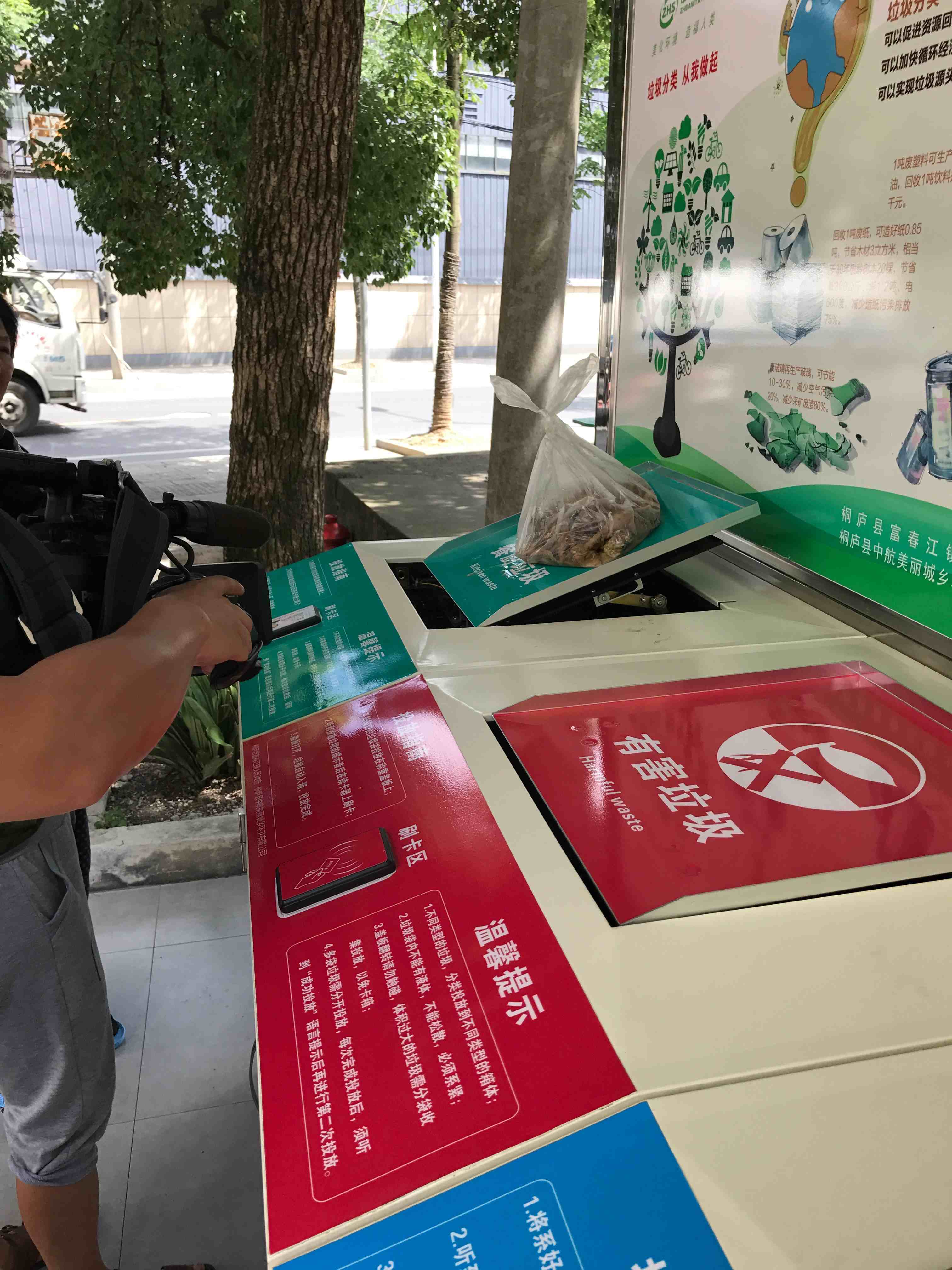
The garbage exchange station in Xiwushan Village of Tonglu County, Zhejiang Province./CGTN Photo
The garbage exchange station in Xiwushan Village of Tonglu County, Zhejiang Province./CGTN Photo
Organic trash, like kitchen waste, will be sent to fertilizer factories for further processing and by mixing it with livestock waste, it can be made into organic fertilizer and sold in supermarkets.
As a result, the county has reduced garbage incineration by an average of 70 tons per day. That, in turn, has largely reduced the secondary pollution of transporting trash, and brought down greenhouse gas emissions from waste incineration. The use of organic fertilizers over chemical ones also reduces underground water pollution.
Zhu Hua, Secretary of CPC County Committee of Tonglu county stressed that the environmental protection industry should form its own ecology. This requires a sound industrial, value and service chains, such as trash recycling, processing, and marketing.
Fight with water pollution
Being one of China's most developed provinces, Zhejiang has witnessed rapid economic growth. But at the same time, it faced serious pollution problems over the past few decades.
As China restructures its industries, the province has started numerous environmental protection initiatives since 2013, especially on water pollution control, which exist as the cutting edge for the province’s industrial transformation.
In Huanxi village of Tonglu county, a treatment facility and an artificial wetland purify the waste water from the village.
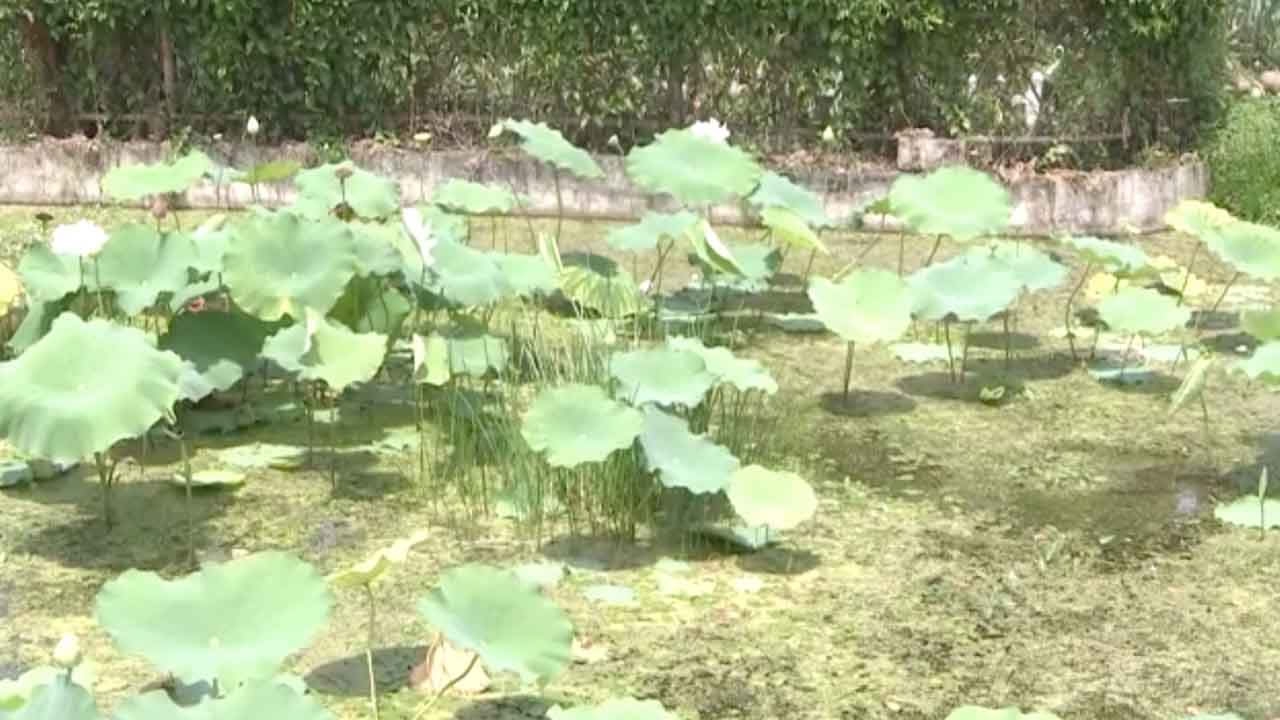
Environmental specialist Chu Yunfeng says people here used to deal with sewage by simply letting it dry naturally, but it all changed 7 years ago when the sewage treatment facility was built in 2010.
There are 9 sewage treatment pools, receiving waste water from more than 600 households, covering around 2,000 people.
The wastewater first goes to a sand basin, where large impurities are extracted, then the water goes to the second pool where anaerobic microorganisms decompose any large organic matter it contains. Finally, an artificial wetland with several layers of cobblestones, covered with microorganisms and aquatic plants, further purifies the wastewater before it's discharged.
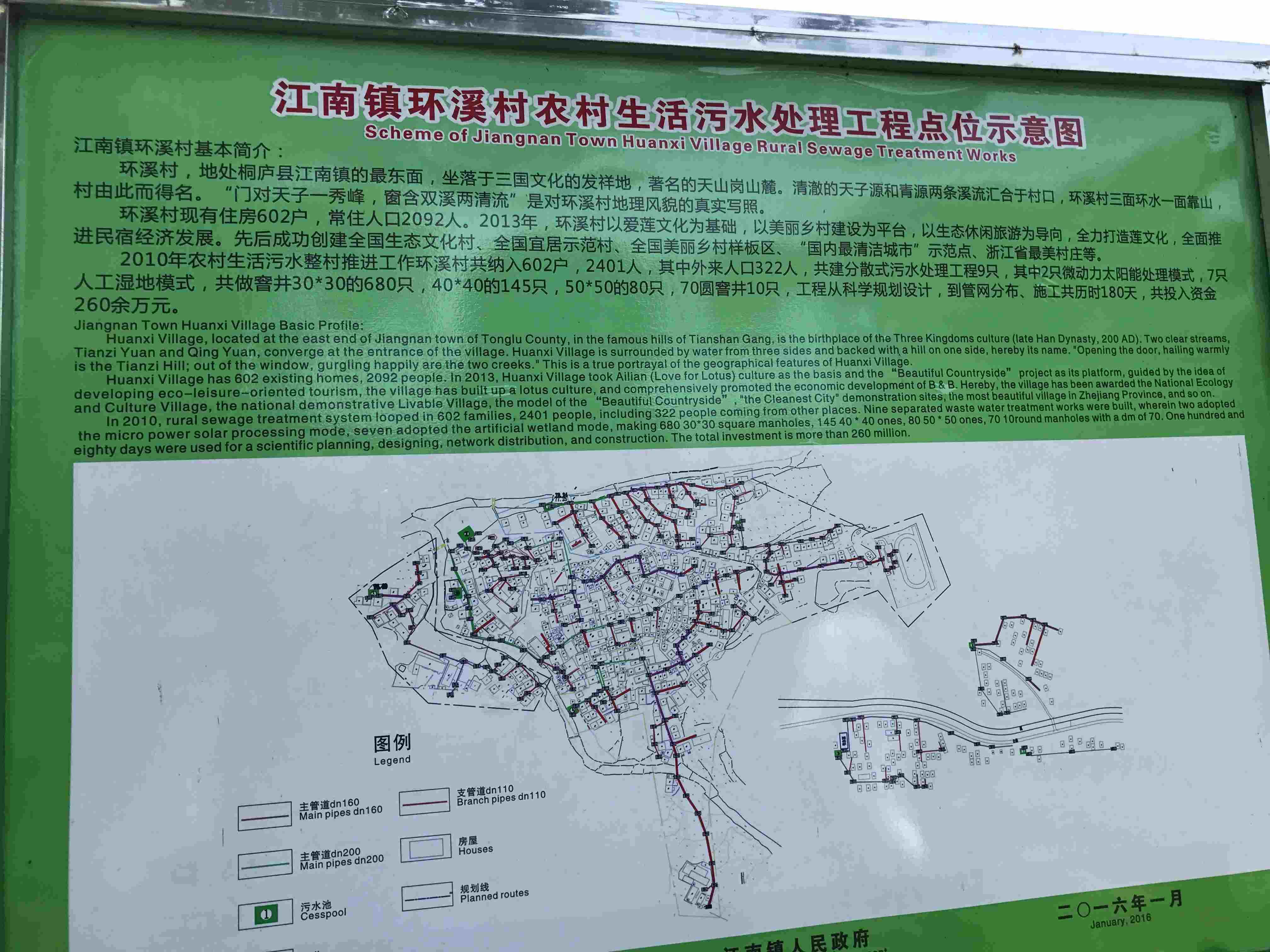
The sewage treatment facility of Huanxi Village covers more than 600 households./CGTN Photo
The sewage treatment facility of Huanxi Village covers more than 600 households./CGTN Photo
This unique purifying technique has attracted study groups and tourists from across the country but it’s just one of hundreds of water pollution control projects across Tonglu county.
They are different in size and techniques used, but they have one thing in common. Their day-to-day operations and maintenance are managed by third party companies. In 2014, the environmental protection authorities of Zhejiang Province required all sewage treatment plants to upgrade their emission standards.
That meant more than 90 million yuan of extra cost for the Sewage Treatment Plant of Tonglu county, but the local government managed to find a way out by transferring the plant’s franchise to the third party company for 25 years. The company then upgraded the sewage treatment facilities to meet the new emission standards.
Now a much more professional third party is taking care of the plant, and the county government doesn't have to worry about the money any more.
Efficiency and professionalism have become the main principles guiding not only waste water treatment, but also how it's monitored.
A smart environment monitoring system was developed and adopted by Tonglu county’s environmental protection bureau a year ago, and an investment of 50 million yuan has made authorities capable of inspecting severe pollution situations and monitoring all environmental protection facilities.
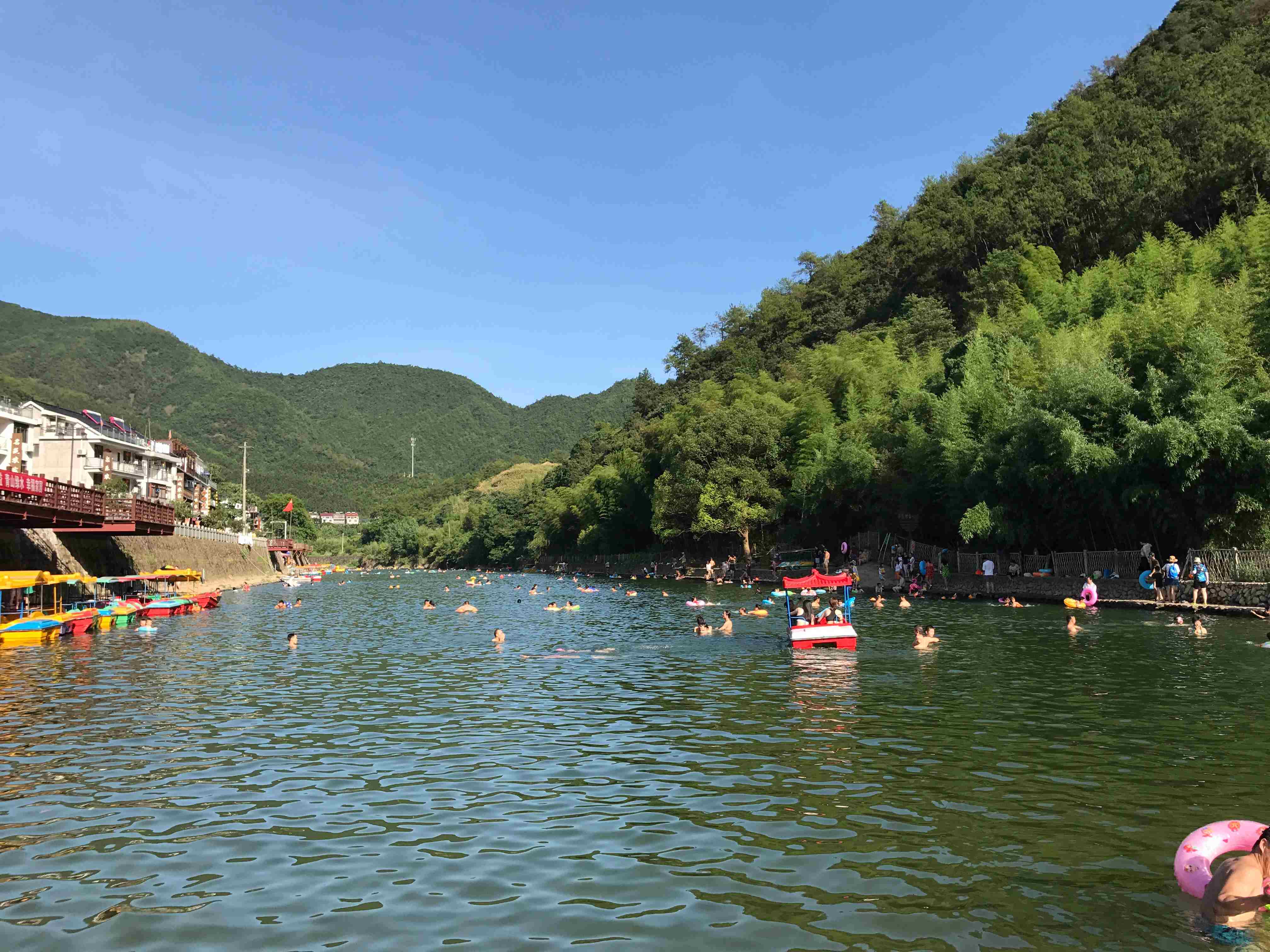
83 main rivers in Tonglu County have become clean enough to swim in./CGTN Photo
83 main rivers in Tonglu County have become clean enough to swim in./CGTN Photo
This primarily shortens the authority’s decision making and crisis handling processes - very different to how it used to be. Fang Wenjian, deputy director of Tonglu county’s Environmental Protection Bureau, said their supervisors had to go to the field to solve problems in the past.
But now, with the help of the smart system, they are able to find out what is happening out there without leaving the control room. It has helped them improve work efficiency, especially when they are understaffed.
Upgrading the environment has transformed into economic benefits too, with tourism industry seeing rapid growth in the region.
Over the past three years, Tonglu county has shut down over 300 heavy pollution enterprises and nearly 600 livestock farms, making it now regarded as one of China’s most beautiful counties.
But local officials know that everyone will have to continue to play their part in waste water control, if the county wants to live up to its name.
(Written by Tang Bo.)

SITEMAP
Copyright © 2018 CGTN. Beijing ICP prepared NO.16065310-3
Copyright © 2018 CGTN. Beijing ICP prepared NO.16065310-3